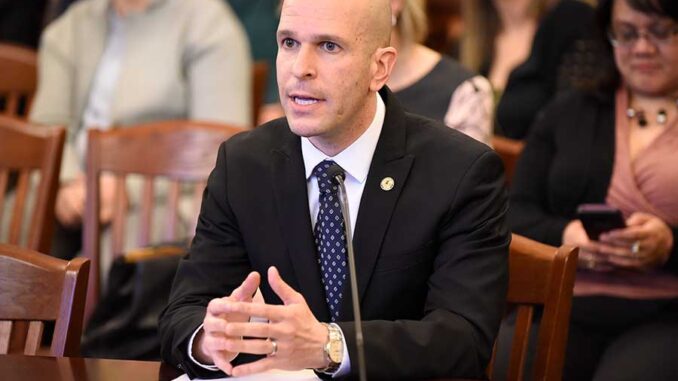
Although NFL teams, like most professional sports franchises in America, are largely owned by billionaires, many still find ways to secure public funding for new or upgraded stadiums. The Bears are currently one of the teams looking to move from their longtime home, Soldier Field, in search of a more modern venue.
Unsurprisingly, the debate over the location and funding of the new stadium is creating controversy, with the Bears requesting over $2 billion in public money for the project. One Illinois politician, State Representative Bob Morgan, has proposed that any funding for the new stadium should be linked to the team’s performance.
While this proposal technically applies to all professional sports teams in Illinois, it’s clear that the focus is on the Bears, as evidenced by the bill’s name—the BEARS Act and DA BEARS STADIUM OVERSIGHT ACT. The White Sox are also reportedly seeking funding for a new stadium, and Morgan’s proposal would apply to them as well.
The core of the Balanced Earnings And Record Standards (BEARS) and Stadium Oversight and Expectations Act is simple: to qualify for public funding for a new or upgraded stadium, a team must have a winning record in at least three of the past five seasons.
Here’s the full version of the proposal put forth by Morgan and the Illinois General Assembly:
The Balanced Earnings And Record Standards (BEARS) and Stadium Oversight and Expectations Act is introduced, outlining its purpose and defining key terms. To qualify for public funding, a professional sports team must have a .500 or better record in at least three of the last five regular seasons. This requirement applies to requests for public funding related to stadium construction, renovation, and maintenance. Teams with fewer than five years of existence are exempt but must prove competitive performance by achieving a .500 or above record in at least two of their first five seasons before applying for further public funding.
The Illinois Sports Facilities Authority (ISFA) will issue a public report confirming the team’s eligibility before the State or local government considers any public financing. Prior to any public hearing on such proposals, the ISFA must publish a report detailing the team’s performance record over the past five seasons, the total public funding requested, and the expected economic impact on the local community. This report must be publicly available on the ISFA website at least 30 days before the public hearing.
If a team is found to have intentionally misrepresented its performance or eligibility, it could face a fine up to $500,000 and be banned from applying for public funding for five years. The Attorney General may take legal action to enforce these penalties. The Act includes a severability clause and takes effect immediately.
I mean, this isn’t a bad idea, right? In the past, teams moving cities was a big issue — the classic BASEketball movie made a hilarious point about it. But we still see bad teams use the threat of relocating to leverage better stadium deals. This bill might not stop the Bears, Bulls, or any team from leaving, but it would make it harder for a struggling team to demand public money for a new stadium.
This could also be a move by a public official trying to highlight the Bears’ poor performance over recent years. Simply giving them public funds just because they’ve been around for over a century in Chicago isn’t the most responsible thing to do.
It’s a significant issue, so much so that NFL Commissioner Roger Goodell even touched on it during his “State of the League” press conference at Super Bowl LIX.
“The Bears are being very thoughtful, they’re speaking to everybody about their needs as well as community needs and where they can find a stadium that can be suitable and can have the kind of impact of having big events,” Goodell said this week.
They might want to be careful about being too “thoughtful,” though. If this bill passes before the Bears finalize their plans, they could face more hurdles when it comes to getting approval for a new stadium.
Leave a Reply